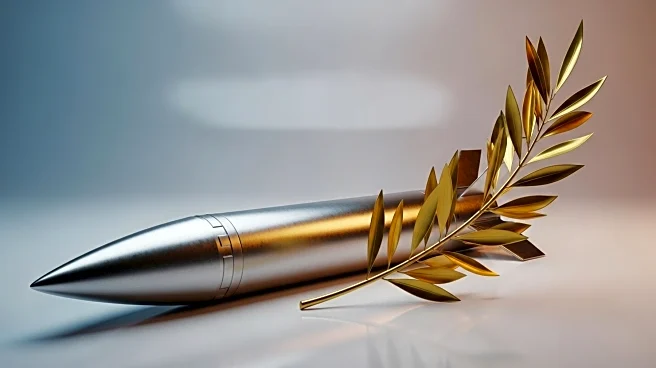What's Happening?
Russian President Vladimir Putin announced that Russia will adhere to the New START Treaty for an additional year, extending the last remaining nuclear arms control pact between Russia and the United States. The treaty, which limits both nations to 1,550 deployed nuclear warheads and 700 deployed missiles and bombers, is set to expire in February. Putin emphasized the importance of continuing the treaty to avoid negative impacts on global stability and nuclear nonproliferation. The treaty, signed in 2010, has faced challenges, including suspended compliance inspections since 2020 due to geopolitical tensions.
Why It's Important?
The extension of the New START Treaty is significant as it maintains a framework for nuclear arms control between the U.S. and Russia, two major nuclear powers. This move could stabilize international relations and prevent an arms race, which is crucial given the ongoing geopolitical tensions, particularly related to the conflict in Ukraine. The treaty's continuation may also influence global nuclear nonproliferation efforts, providing a basis for future negotiations and agreements. However, the lack of active compliance inspections remains a concern for arms control advocates.
What's Next?
The extension sets the stage for potential negotiations between the U.S. and Russia to renew or revise the treaty beyond the one-year period. Both nations may engage in diplomatic discussions to address the suspended compliance inspections and ensure mutual adherence to the treaty's terms. The international community will likely monitor these developments closely, as the treaty's future could impact global nuclear stability and security.








